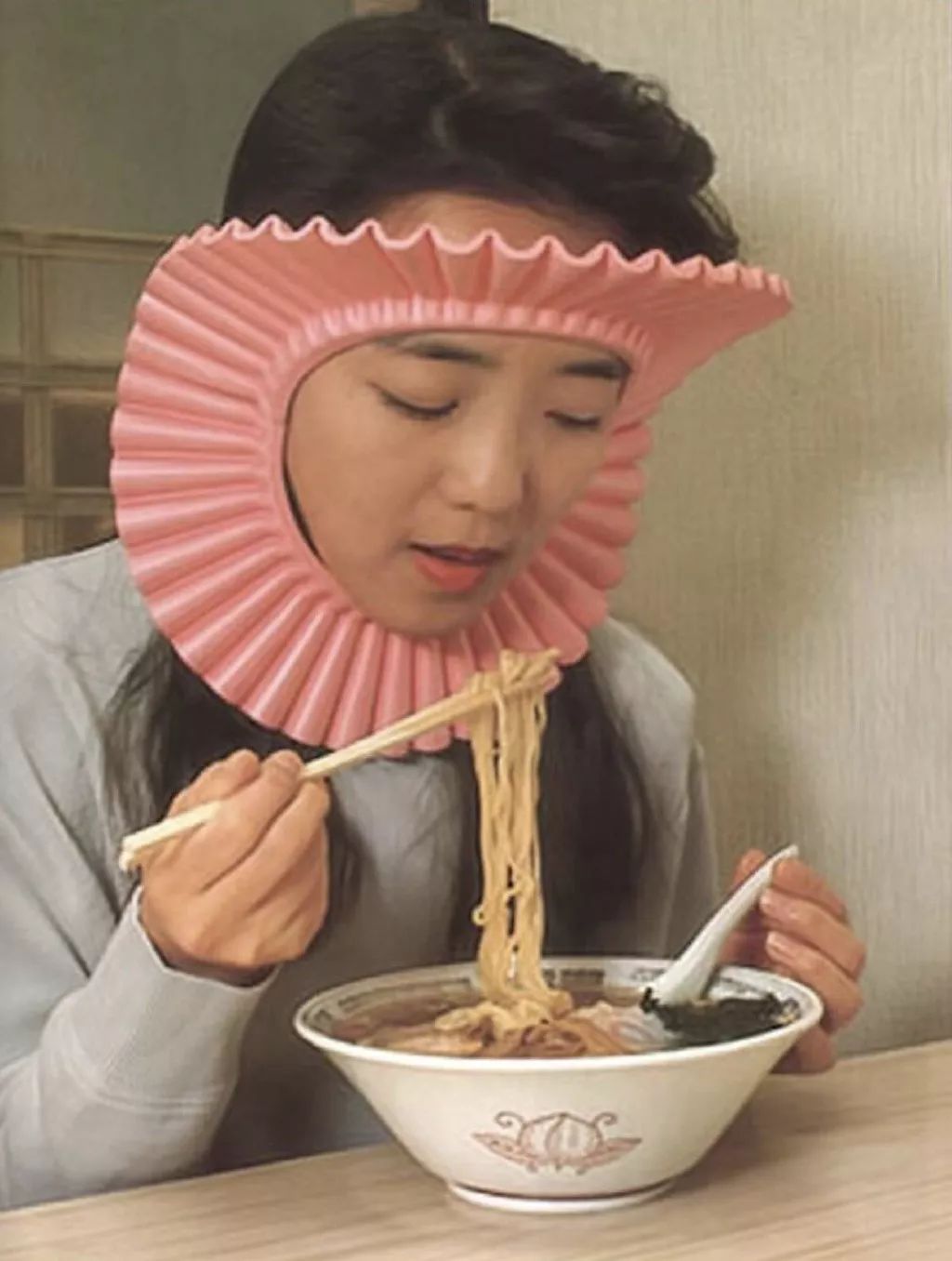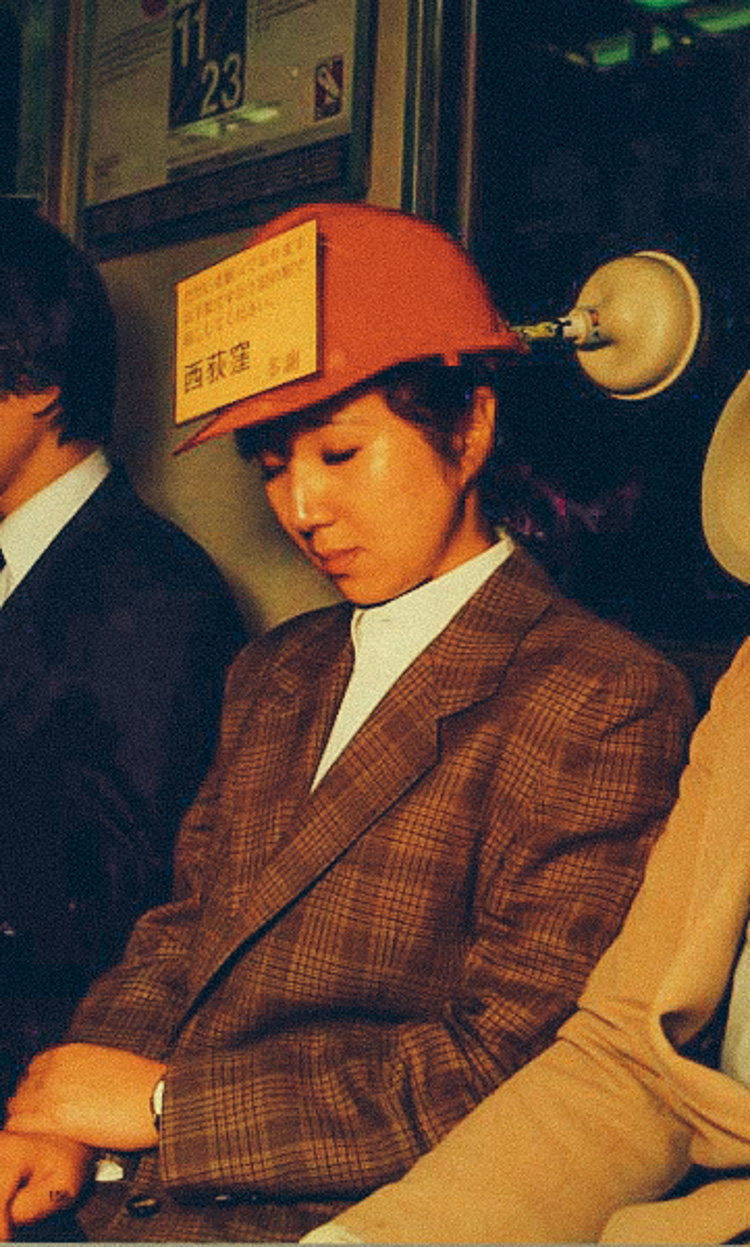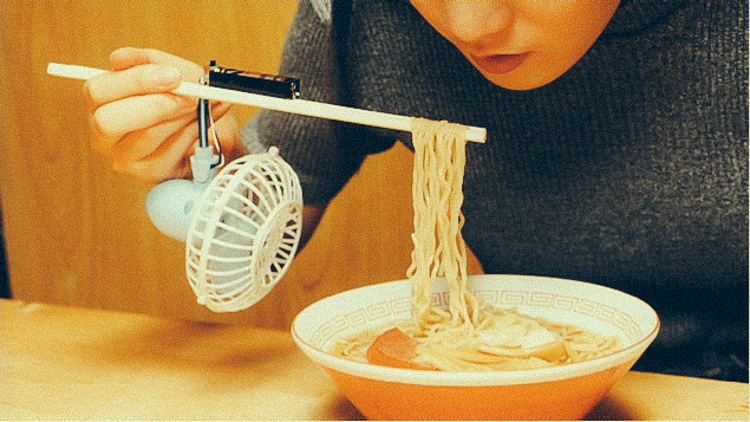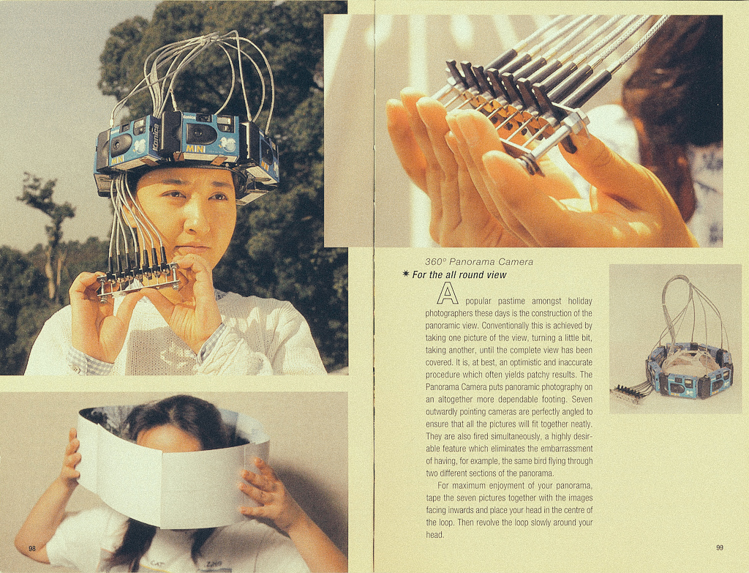Chindogu UP191
Chindōgu (珍道具) originated in Japan and is characterized by the invention of ingenious everyday gadgets that seem to be ideal solutions to particular problems, but which, in fact, cause more problems than they solve.
Literally translated, chindōgu means unusual (珍, chin) tool (道具, dōgu). The term was coined by Kenji Kawakami, a former editor and contributor to the Japanese home-shopping magazine "Mail Order Life." In the magazine, Kawakami used his spare pages to showcase several bizarre prototypes for products. He named these gadgets “chindōgu”; Kawakami himself said that a more appropriate translation than "unusual tool" is "weird tool". This special category of inventions subsequently became familiar to the Japanese people.
Dan Papia then introduced it to the English-speaking world and popularized it as a monthly feature in his magazine, Tokyo Journal, encouraging readers to send in ideas. In 1995, Kawakami and Papia collaborated on the English language book 101 Unuseless Japanese Inventions: The Art of Chindōgu.
![]()
![]()
![]()
![]()
![]()
![]()
![]()
![]()
Literally translated, chindōgu means unusual (珍, chin) tool (道具, dōgu). The term was coined by Kenji Kawakami, a former editor and contributor to the Japanese home-shopping magazine "Mail Order Life." In the magazine, Kawakami used his spare pages to showcase several bizarre prototypes for products. He named these gadgets “chindōgu”; Kawakami himself said that a more appropriate translation than "unusual tool" is "weird tool". This special category of inventions subsequently became familiar to the Japanese people.
Dan Papia then introduced it to the English-speaking world and popularized it as a monthly feature in his magazine, Tokyo Journal, encouraging readers to send in ideas. In 1995, Kawakami and Papia collaborated on the English language book 101 Unuseless Japanese Inventions: The Art of Chindōgu.








